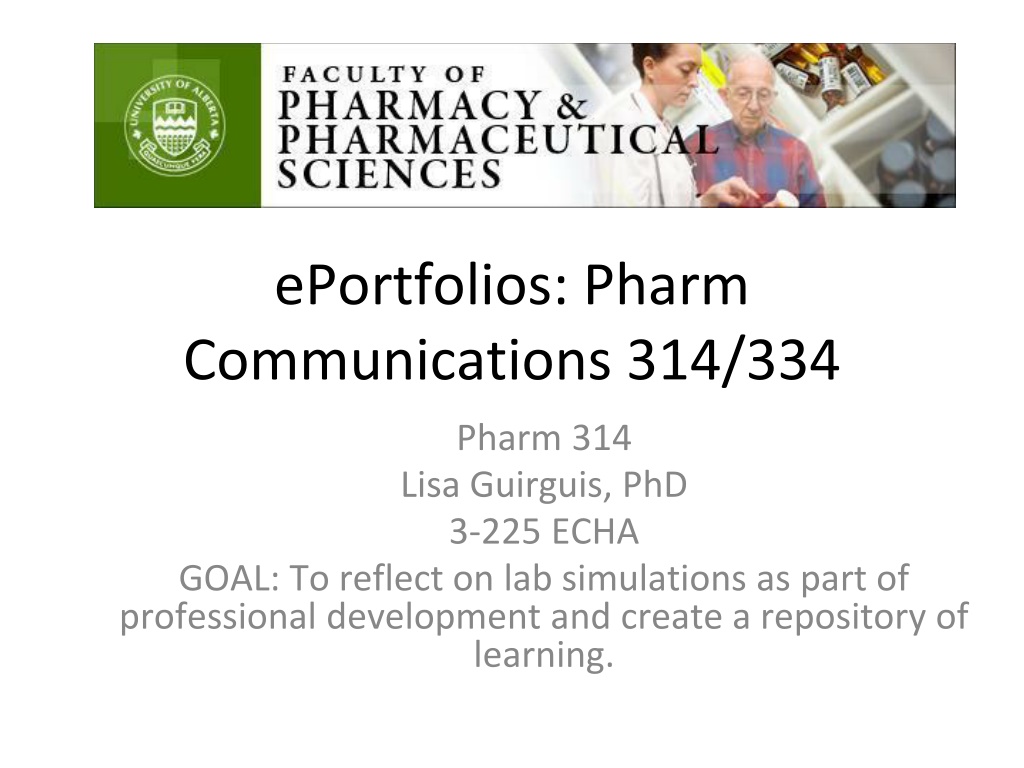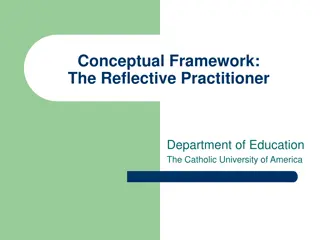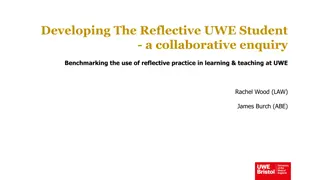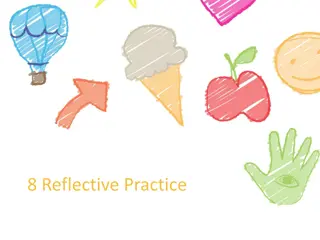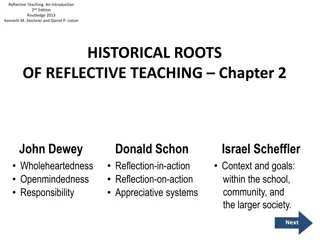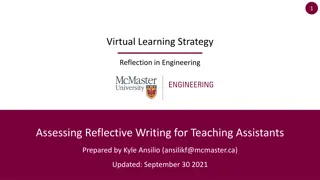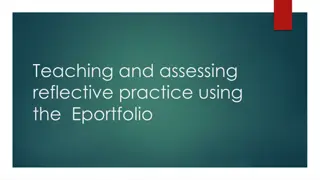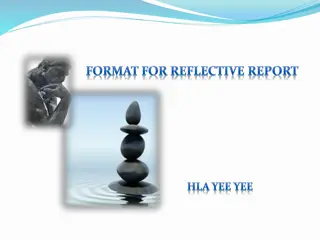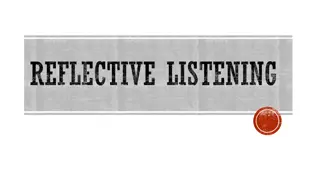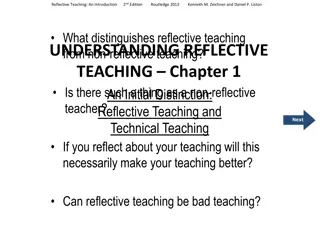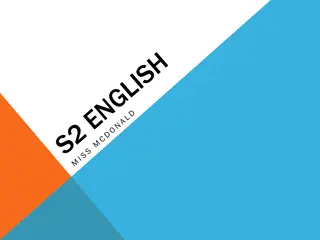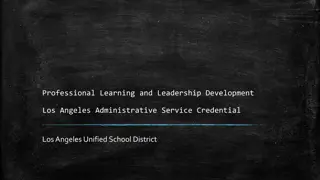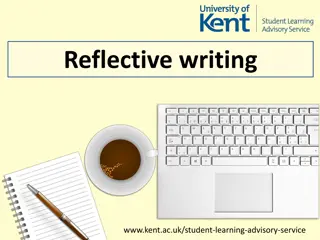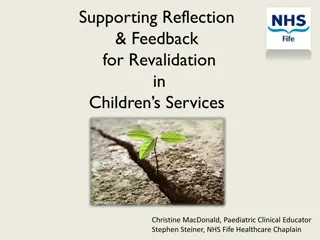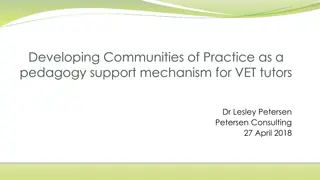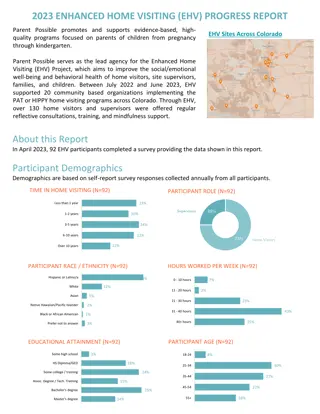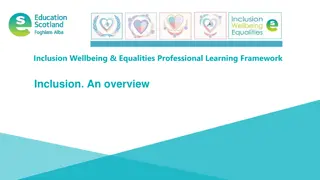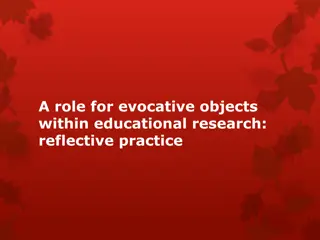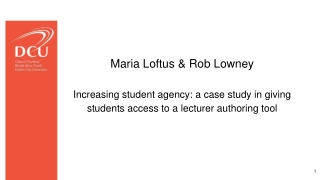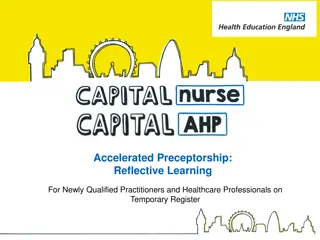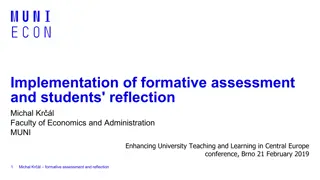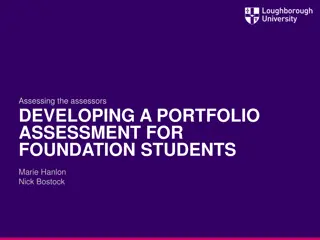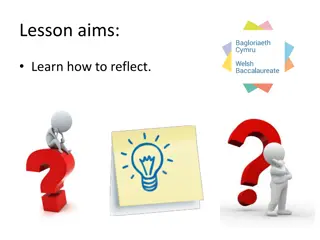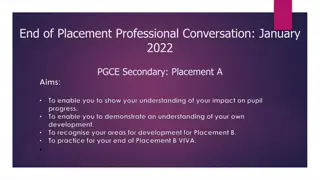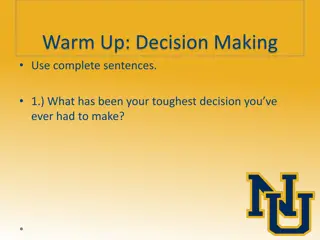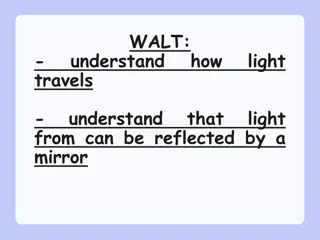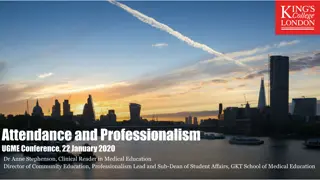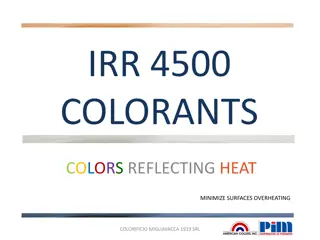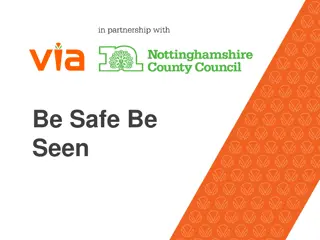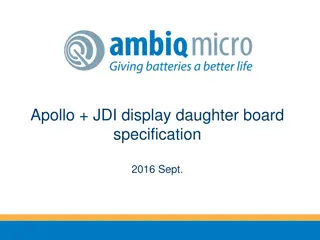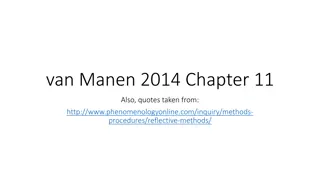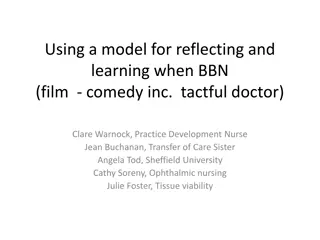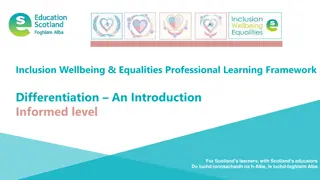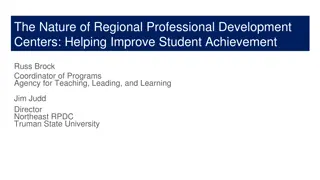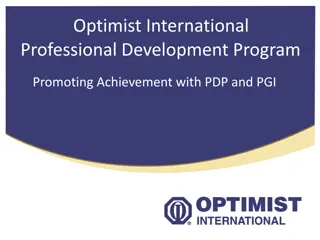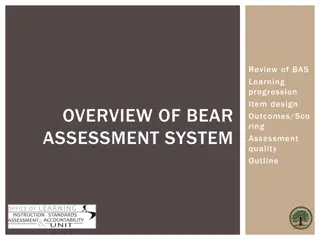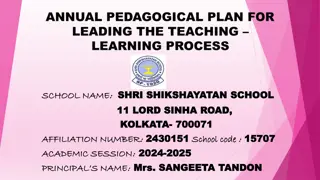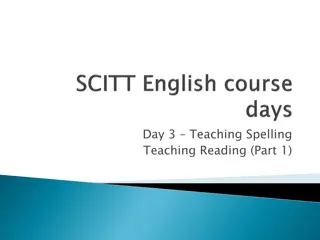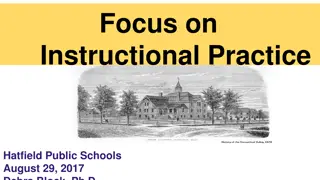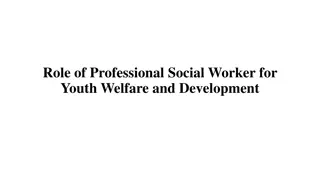Enhancing Professional Development Through Reflective Practices
Reflecting on lab simulations is crucial for the professional development of health professionals, leading to increased diagnostic accuracy and reduced medical errors. This ePortfolio by Lisa Guirguis, PhD, aims to create a repository of learning through formal reflection. The importance of reflection is highlighted through insightful quotes and a simple model to guide the reflection process effectively.
Download Presentation

Please find below an Image/Link to download the presentation.
The content on the website is provided AS IS for your information and personal use only. It may not be sold, licensed, or shared on other websites without obtaining consent from the author. Download presentation by click this link. If you encounter any issues during the download, it is possible that the publisher has removed the file from their server.
E N D
Presentation Transcript
ePortfolios: Pharm Communications 314/334 Pharm 314 Lisa Guirguis, PhD 3-225 ECHA GOAL: To reflect on lab simulations as part of professional development and create a repository of learning.
Why Reflect? formal reflection by health professionals increased diagnostic accuracy (K.V. Mann, 2008) and reduced in medical errors (Wald & Reis, 2010). Source: http://guides.library.ualberta.ca/content.php?pid=157535&sid=1333738
Why Reflect? Insanity: doing the same thing over and over again and expecting different results. Misattributed to various people, including Albert Einstein and Mark Twain. The earliest known occurrence, and probable origin is Rita Mae Brown, Sudden Death (Bantam Books, New York, 1983), p. 68. "We learn not from doing, but by thinking about what we do. - Unknown source.
How to Reflect? This is a simple model which poses the questions What? So what? And Now what? What describe the situation; achievements, consequences, responses, feelings, and problems. So what discuss what has been learnt; learning about self, relationships, models, attitudes, cultures, actions, thoughts, understanding, and improvements. Now what identify what needs to be done in order to; improve future outcomes, and develop learning It is believed that the third and final stage is of the greatest importance in contributing to practice Rolfe et al (2001). Rolfe et al (2001) Framework
Ten years of experience without reflection is just one year experience repeated ten times. (Arseneasu & Rodenburg, 1998)
0 1 2 Needs Improvement Satisfactory Outstanding Med exp not present, unclear, multiple aspect presented, or lacks relevance. Basic description of one aspect of the medication experience. Detailed and insightful description of one aspect of the medication experience. Description ( What ) Provides detailed description of ONE aspect of the medication experience. Analysis of event context missing, unclear, or lacks relevance. Writing is descriptive. General analysis of how event has impacted self and aligns with own ideas (or not). Some details may be lacking. Clear examples of how this experience changed self. Clearly and insightfully analyzes how event has impacted self, and aligns with own ideas (or not). Personalized/ in-depth. Context ( So What ) Meaningful attempt to understand the personal experience -Explores how idea aligns with own beliefs or values Evaluates how own thoughts, actions, and perceptions may have changed (or not) No relevant implications for future practice identified. Indicates plans for future based on the reflection. Specific and insightful future plan. Implications ( What Now ) Event analyzed with reference to future coursework and future practice. Writing Style/ Organization Spelling /capitalization Sentence structure First person encouraged No informal word or contraction Transitions, sequencing, flow Concise Meets Deadlines Significant errors. Colloquial tone and language. Inadequate proof reading. NOT Submitted to eClass by due date and NOT available in the ePortfolio. Few grammatical, spelling or organizational errors Submitted to eClass by due date and available in the ePortfolio. Essentially error free. Reads well. Submitted to eClass by due date and available in the ePortfolio.
In Pharmacy Practice Lab In Pharmacy Practice Lab Peer Feedback on Simulation Start doing Stop doing Keep doing Feedback is Clear, Owned, Regular, Balanced, & Specific Simulation Next Simulation Online ePortfolio Online ePortfolio Self Reflection: What? (While you may list several aspects; clearly focus on 1) So What? (why is it important) What Now? with SMART* Goal(s) Record peer feedback and reflect: What? (focus on 1 key area) So What? What Now? with SMART* Goal(s) *Specific, Measureable, Attainable, Realistic, and Timely
